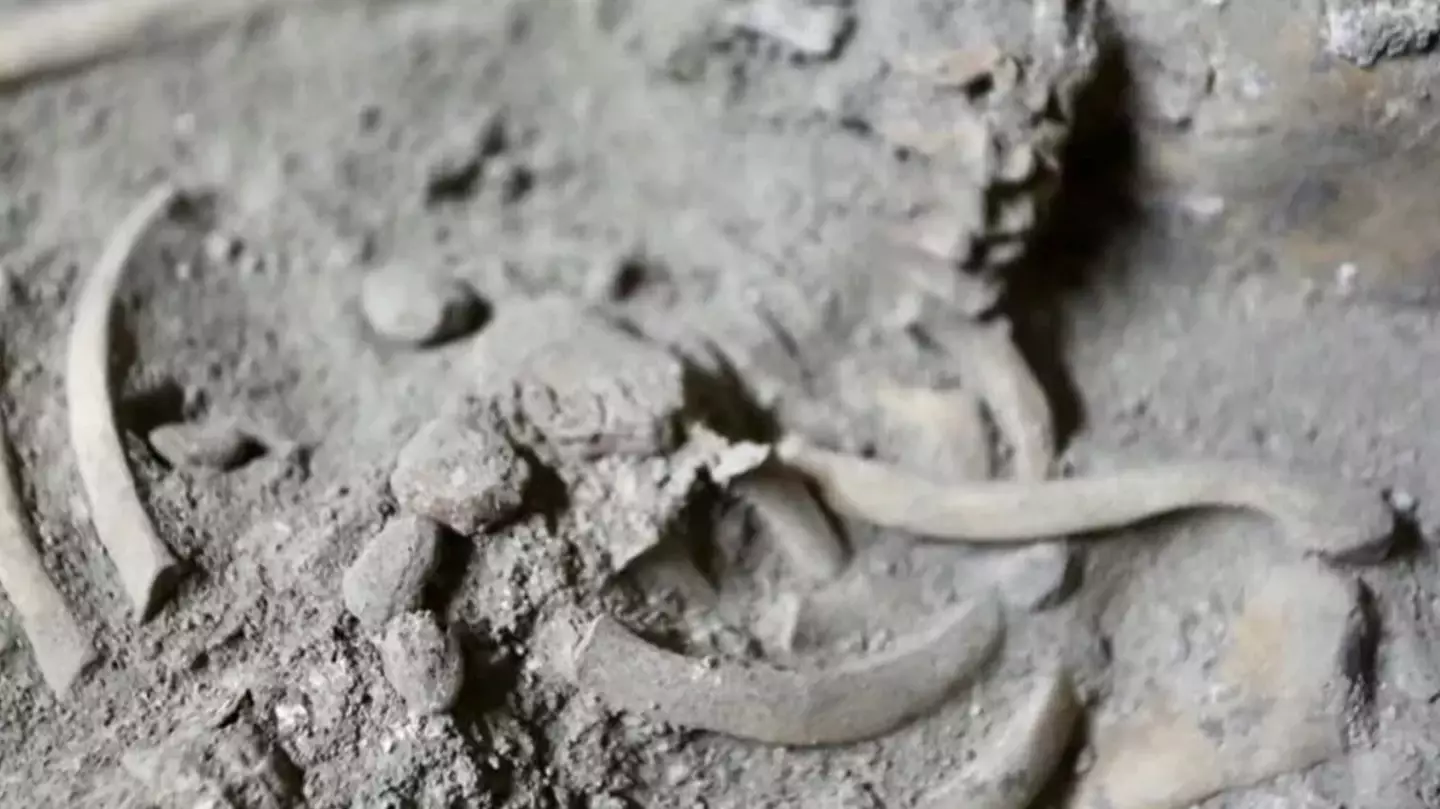
An ancient skeleton found in a remote cave could 'rewrite human history', experts have claimed.
Archeologists have made a groundbreaking discovery, having unearthed the remains of a child from the Stone Age in a remote cave in Thailand.
The bones, estimated to be around 29,000 years old, are the oldest human remains to have ever been found in the Southeast Asian country and challenge previous beliefs of when our early ancestors roamed the region from the late Pleistocene era, as per Livescience.
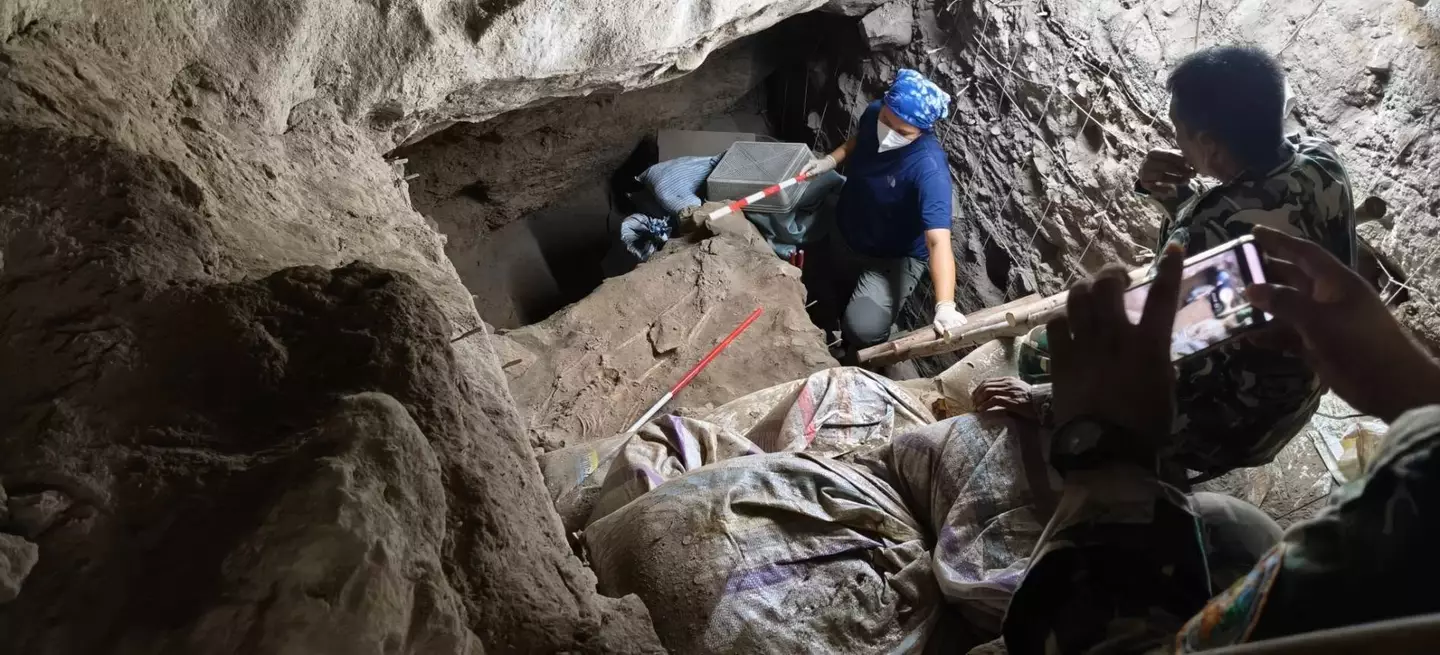
Advert
The historic skeletal remains of the child, believed to be around six or eight-years-old at the time of death, has since been nicknamed 'Pangpond' in reference to a beloved Thai cartoon character.
The youngster's remains were also interestingly found in an apparent 'ritualistic' burial site within Tham Din Cave, some 125 meters above sea level, in Khao Sam Roi Yot National Park.
The site is already renowned for its prehistoric rock art, but now it stands as another unique reference point for early human activity in the country.

The Thai government's Fine Arts Development and Department of National Parks, Wildlife and Plant Conservation announced the discovery in a news conference last month, according to the Prachuap Post, and say the corpse coupled with its unique burial have altered previous beliefs about the timeline of human occupation in the region by tens of thousands of years.
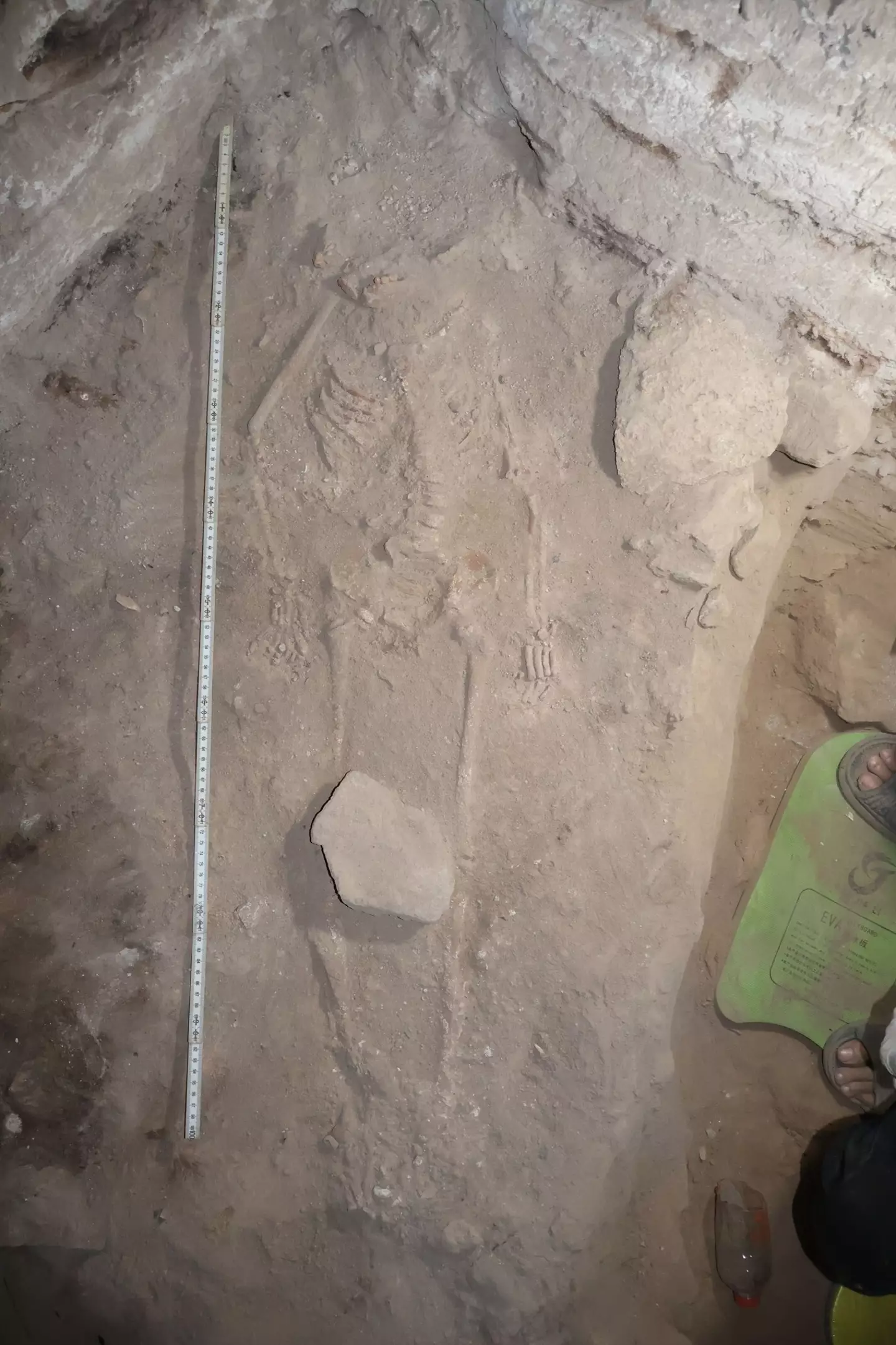
Phnombootra Chandrajoti, the Director General of the Fine Arts Department said: "This is a groundbreaking discovery that will reshape our understanding of early human presence in Southeast Asia.
"The careful burial and the associated artefacts provide invaluable insights into the rituals and daily lives of these ancient inhabitants."
Pangpond was also found to be in a specific position, stretched on their back with their arms and legs close to their body, which suggests they were respectfully put to rest after being wrapped or tied before burial.
Meanwhile, ash and charcoal around the grave suggest a fire was built around it - a deliberate practice of our prehistoric ancestors to deter wild animals.
The FAD commented: "The body was carefully placed and surrounded by stones, indicating a level of respect and care in the burial process.
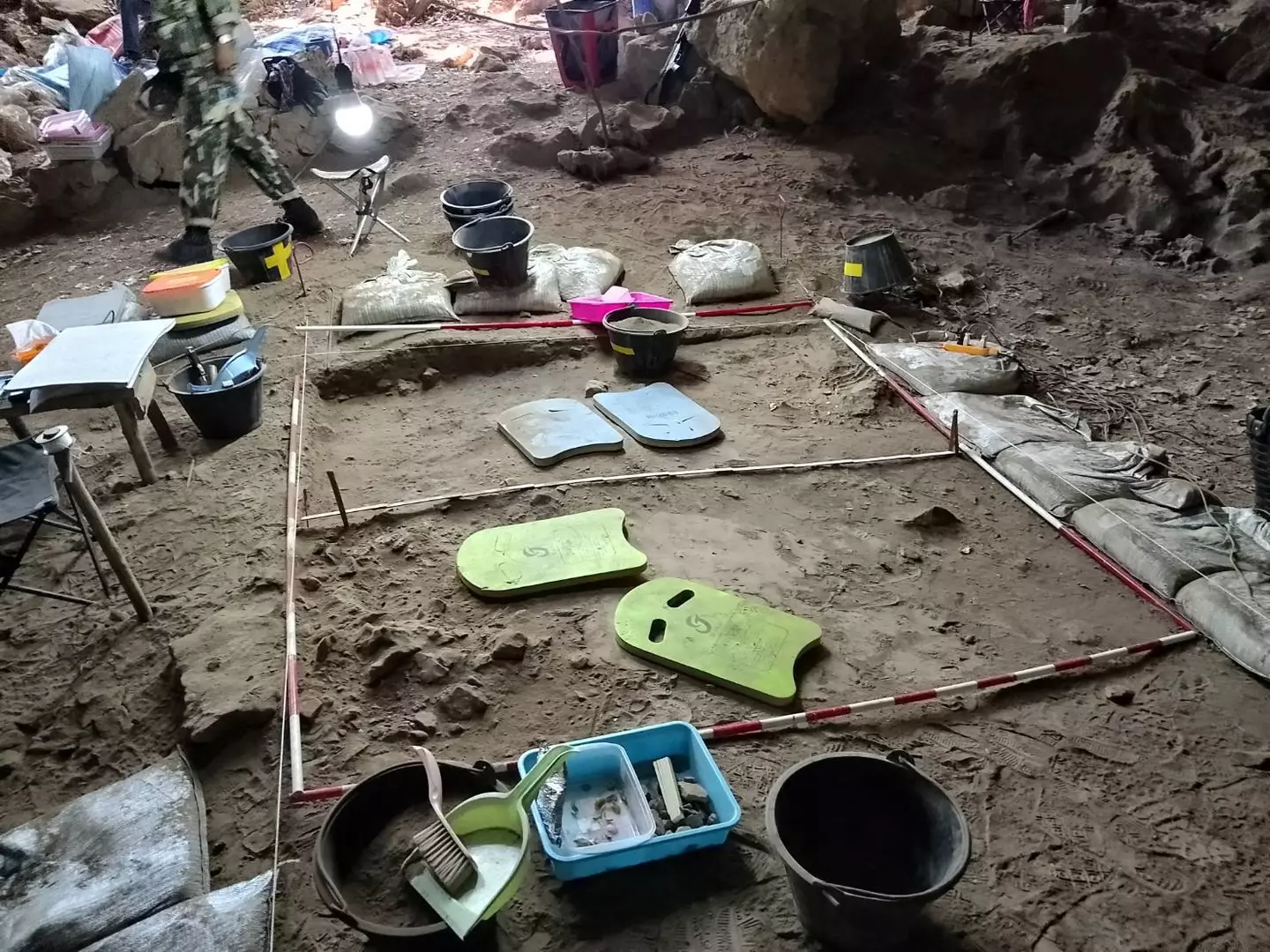
"The positioning of the limbs, with the toes touching, suggests the body may have been wrapped or tied before burial," reports the Daily Star.
Through soil and fossil analysis, experts believe Pangpond's remains could be older than 29,000 years and date back to a landmass now submerged under water, Sundaland, which used to connect swathes of land across Southeast Asia during the last ice age some 110,000 to 12,000 years ago.
The archaeological site first attracted interest in 1996 with the landmark discovery of prehistoric rock paintings, and in 2020, teams started studying the works made in red ocher on the walls and ceilings of three chambers in the cave.
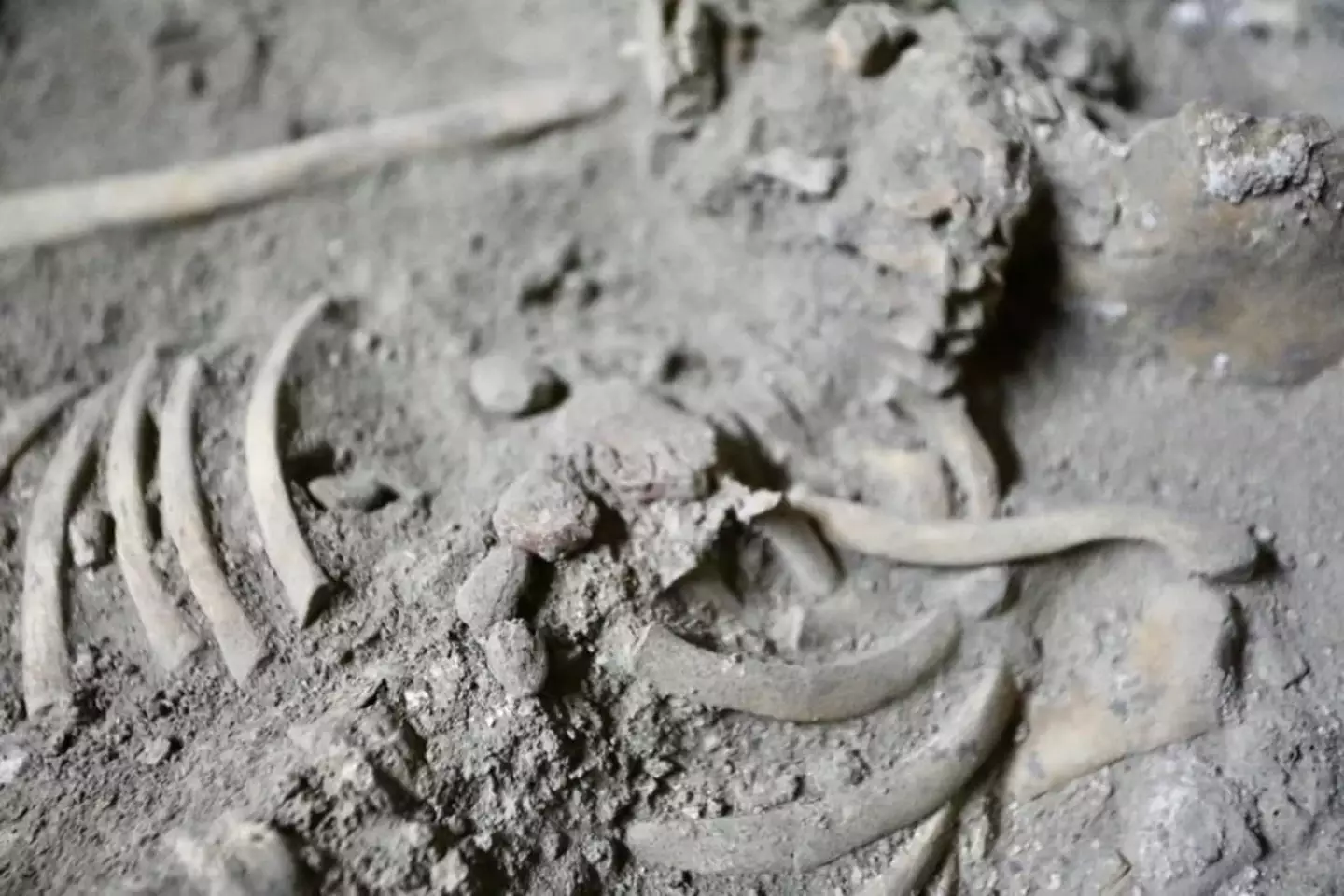
Many of the paintings appear to depict people as well as hunters with bows and arrows.
Further excavation of the site in 2022 uncovered animal bones, shells, seeds and stones that suggested early humans used the cave, while radiocarbon dating of the items indicated a prehistoric community lived there some 11,000 to 29,000 years ago.
A FAD spokesperson added: "The Din Cave site offers a unique window into the past, documenting the evolution of human societies over thousands of years.
"Further research and analysis will undoubtedly shed more light on the lives of these ancient people and their contributions to the region's rich history."
Topics: History, Science, Thailand, World News, Art